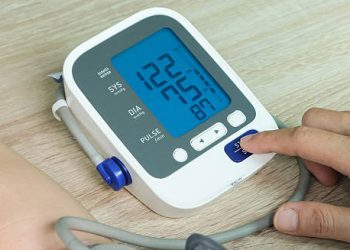Symptoms of liver cancer can be subtle, non-specific, or entirely absent during the early stages, making early detection a significant clinical challenge.
The liver can keep working even when it’s damaged. Because of this, many people do not notice any signs until the disease becomes serious. The symptoms of liver cancer often show up late, which makes early diagnosis hard. Knowing the full range of signs is key to spotting the disease early and getting the right care quickly.
Early Signs and Common Misunderstandings
At first, liver cancer may cause no symptoms. This silent start is one reason why doctors often find the cancer when it’s already advanced. When symptoms do appear, they may seem minor or similar to other health issues. People might feel tired, have mild stomach issues, or think they caught a virus. These mild problems can delay testing and diagnosis.
One of the most common symptoms of liver cancer is losing weight without trying. Many patients feel full quickly and lose interest in eating. Even small meals may feel like too much. This can happen because the tumour takes up space and presses against the stomach. Cancer can also affect the body’s metabolism, causing a serious condition called cachexia, which leads to muscle loss and extreme weight loss.
Pain or discomfort in the upper right belly is another clear sign. It may feel dull and steady or become sharp and severe if the tumour pushes on the liver capsule or nearby nerves. Some people even feel pain in the right shoulder — a problem known as Kehr’s sign — which comes from nerve irritation.
Fluid Buildup, Jaundice, and Digestive Issues
Bloating or swelling in the belly may happen as fluid builds up, a problem called ascites. This usually means the liver is not working well and the cancer has reached a later stage. Patients may also see their belly getting larger or notice visible veins under the skin.
Another key symptom is jaundice, or yellowing of the skin and eyes. It happens when the liver can’t remove bilirubin, a waste product from red blood cells. This can be due to poor liver function or blockage in the bile ducts. Jaundice often comes with dark urine, light-colored stools, and itchy skin, all signs of poor bile flow.
Tiredness and feeling unwell are also very common. These general symptoms don’t always point to liver cancer right away, which is why they’re often overlooked. In liver cancer, this fatigue may be caused by anaemia, toxin buildup, or hormone changes. People often feel exhausted even if they haven’t done much.
As the disease gets worse, nausea, vomiting, and a lack of appetite may show up. Feeling full too quickly, called early satiety, is common. Some patients get fevers or night sweats, which may be caused by the body reacting to tumour growth or breakdown.
Later Symptoms and Unusual Findings
In some cases, people can feel a lump or mass in the upper belly. This lump is usually firm but not painful. It could mean the liver has grown larger or that several tumours are present. During a doctor’s exam, the liver (hepatomegaly) or spleen (splenomegaly) may feel enlarged. These signs suggest the disease may be spreading or causing blood flow issues.
Sometimes, the cancer causes paraneoplastic syndromes. These are side effects from substances made by the tumour or from how the immune system reacts. In liver cancer, this could lead to low blood sugar, too many red blood cells, or high calcium levels. These problems can make people feel dizzy, confused, or weak.
In men, hormonal changes caused by the tumour may lead to shrinking of the testicles, breast swelling (gynecomastia), or loss of interest in sex. While rare, these signs can show up early in some cases and should not be ignored.
The symptoms of liver cancer may also depend on whether the cancer started in the liver (primary) or spread from another organ (secondary). When the cancer spreads from places like the colon, breast, or pancreas, signs may first relate to those original sites.
Emergency Signs, High-Risk Groups, and Early Detection
In rare but serious cases, the tumour can bleed inside the body. This may happen if it bursts or grows into blood vessels. People may feel sudden belly pain, become dizzy, or even go into shock. This is an emergency and needs fast medical care.
Because many symptoms of liver cancer look like other health problems, regular checks are very important for people at high risk. This includes anyone with cirrhosis, chronic hepatitis, or fatty liver disease. Doctors often use scans and blood tests to find tumours early — before any symptoms begin.
Routine screening helps find cancer at a treatable stage. Catching it early gives patients a much better chance for treatments like surgery, tumour removal, or liver transplant.
Final Thoughts on Symptoms of Liver Cancer
To sum up, the symptoms of liver cancer range from tiredness and weight loss to more specific problems like jaundice, belly pain, and fluid buildup. These signs often appear late and can be missed or mistaken for something else. That’s why both doctors and the public need to stay alert, especially in people who already have liver disease. The sooner we notice the signs, the better the chances of saving lives.


